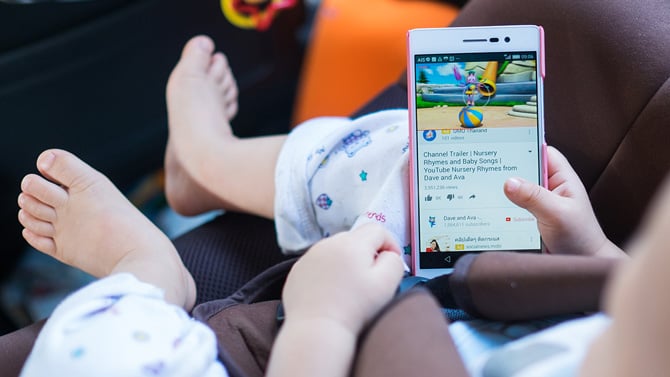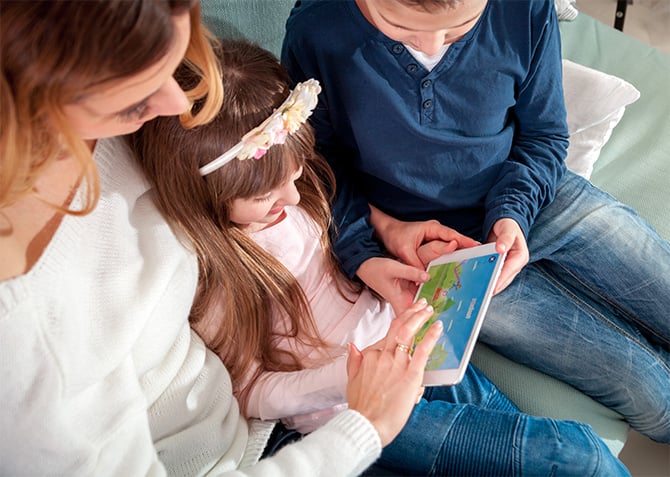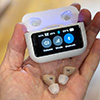If you’ve ever handed your child a phone or tablet just to make it through dinner, you’re not alone, and you’re probably feeling conflicted about it. According to a new survey commissioned by Lingokids, more than 74% of American parents say they feel guilty about allowing their child to use screens, even when the content is educational or the break is badly needed.

As a working mother of three, I’ve been there. I used to load up my phone with my youngest son’s favorite videos before we went out to eat. Once he finished his meal, I’d hand him the phone so the rest of us could enjoy a little peace. During long waits, late dinners, or even work-from-home marathons, screens became a lifeline. And when I could find something that was even remotely educational, or at least not mindless, it felt like a small parenting win.
That tension between guilt and necessity is exactly what Lingokids is spotlighting with its new awareness campaign, “The Trial.” The campaign video, which debuted today, stages a courtroom-style social experiment where real parents confront their mixed feelings about screen time. It’s an emotional watch, especially for those of us who’ve wrestled with the same internal dialogue. The message that stuck with me: You don’t have to be perfect to be a good parent. Or as my own mother put it, “All you can do is your best.”
The survey data behind the campaign is revealing. While 87% of parents allow their kids to use screens, fewer than 10% talk openly about screen time with other parents. Nearly half feel pressure to constantly entertain their child, and 77% feel judged, sometimes to the point of lying about how much screen time their child actually gets. One in four parents even said that judgment has taken a toll on their mental well-being.
Lingokids, which offers a suite of educational content for children ages 2–8, is trying to shift the conversation from shame to intentionality. “The real challenge is that parents often feel caught between two extremes: content their kids enjoy but they feel guilty about, and content they approve of but kids won’t engage with on their own,” said Lingokids CMO Mikael Journo. The goal, he says, is guilt-free screen time, where educational value and kid-friendly engagement coexist.
Read more: Google Finally Gives Parents Control Over Kids’ Calls and Texts
I haven’t used Lingokids with my own kids; they’re too old for it now, but I’ve explored the app and appreciate its balance of learning activities and edutainment videos. There’s a noticeable gap between mindless scrolling and structured, child-friendly content, and Lingokids seems to live in that middle ground. And unlike the YouTube rabbit holes many of us worry about, it’s an ad-free environment designed for safe, independent exploration.

The guilt surrounding screen time isn’t just a parenting issue; it’s also a mental health concern. The U.S. Surgeon General has highlighted the need to support parents and caregivers navigating this digital world. But as the Lingokids campaign reminds us, the quality of screen time matters more than the quantity. And letting go of perfection doesn’t make you a bad parent; it might just make you a better one.
[Image credit: BigStockPhoto, Lingokids]
















